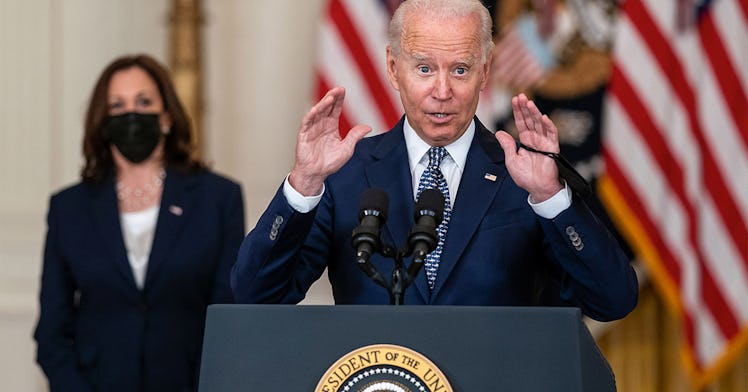Democrats Want to Hike Taxes for Infrastructure Package. Here’s Who Would Be Affected
Hint: it's probably not you.

New details on the House Democrats’ proposed tax increases were outlined, and it’s clear that the average working American is going to be just fine. In fact, it looks like Dems, in order to “pay for” some of their major investments in child care, paid leave, public college, and more, are going for large corporations and wealthy people. The idea is to tax those who have historically had large tax exemptions and have benefited from major loopholes in order to not contribute to American society and use the hikes to help fund the proposed social safety net and climate policy infrastructure. Here’s what you need to know, and who will be affected by the tax hikes.
According to CNBC, the House Democrats unveiled their plan to help fund its $3.5 trillion budget bill. The plan includes a bevy of tax hikes for the nation’s wealthiest people, specifically looking to increase the top corporate tax rate from 21 percent to 26.5 percent.
The proposals are subject to change before the Democrats craft and present the final bill in the coming weeks. The plan is to have a committee vote this week on the proposals, which are likely to generate more than $2 trillion. That money would be freed up to go toward increasing renewable-energy tax breaks, creating a national paid-leave program, and go toward expanding Medicare.
So who is affected by the proposed tax hikes? The new plan comes in below where the Biden administration had first proposed, CNBC explains. The new tax rate would start at taxable income of $400,000 for individuals and $450,000 for married couples. The 3-percentage-point surtax would apply to individuals and married couples with adjusted gross income above $5 million.
However, President Joe Biden has promised not to raise taxes on anyone who makes less than $400,000 per year, and he has kept that promise.
Not everyone is happy about the new proposed taxes, specifically the owners of the large corporations and the wealthiest people. “Rolling back job-creating tax reforms will slam the brakes on hiring and wage increases,” Neil Bradley, chief policy officer at the U.S. Chamber of Commerce, said to The Wall Street Journal.
Others feel the new tax hikes would be a benefit to many. “The changes, when combined with the expanded child tax credit available to households with no income, make the income-tax system much more of a tool for redistribution,” CNBC writes.